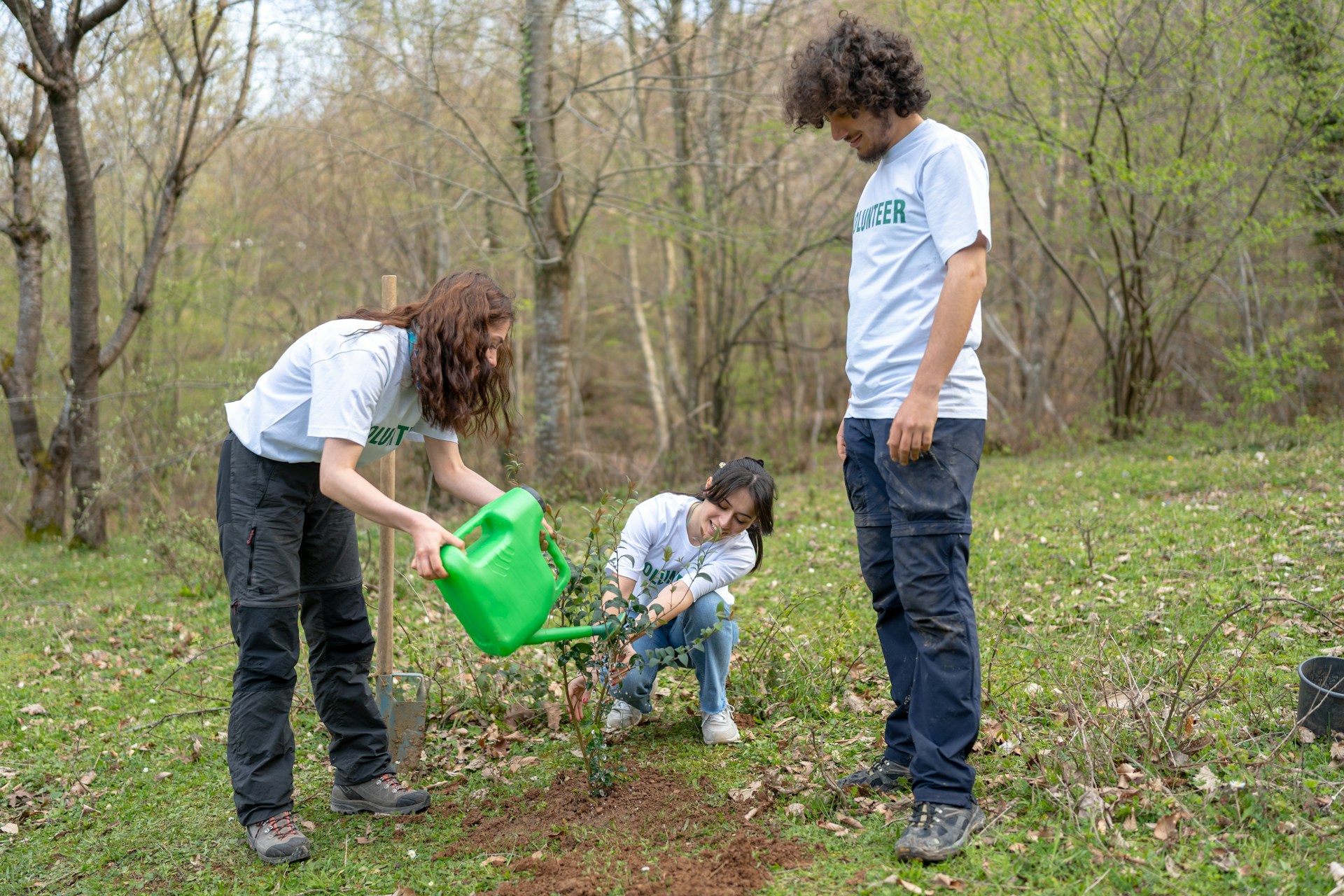Every business has goals. Some focus on boosting revenue. Others want to expand their reach or improve internal operations. But there’s a shift happening. More companies are learning that meeting their goals doesn't mean leaving people or communities behind. They’re finding ways to combine purpose with profit and make meaningful choices in how they operate.
That’s where corporate social responsibility comes into play. CSR volunteering allows businesses to support causes that their teams care about while moving closer to their business objectives. Whether it’s mentoring students, helping clean up a local park, or offering professional skills to nonprofits, these efforts help build purpose into the workday. They also shape how a business is viewed, not just by its employees but also by the wider public.
Chezuba helps companies bring these efforts to life, making it easier to create CSR programs that feel real and rewarding. With the right support and planning, social responsibility and business goals can work side by side.
Aligning CSR Volunteering With Business Objectives
CSR volunteering doesn’t need to live off to the side. It can become a natural part of how a company thinks and works. When done with intention, it reflects what a business values and helps drive growth in unexpected ways.
To start, think about what matters most to both your business and your community. If your team works remotely, this may mean supporting flexible or virtual volunteering options. For companies with a local footprint, focusing on nearby causes helps create more visible impact.
From there, build CSR planning into your bigger picture strategy. Instead of asking employees to volunteer in their time off, think about how their talents and passions can tie directly into your mission. For example, a finance team could provide budgeting help for a community group. The connection makes volunteering feel useful and relevant.
A small sales team once joined a monthly financial literacy workshop for teens in their city. They practiced communication skills, built connections, and inspired young people. The event later turned into a valuable recruitment tool, with some attendees applying for internships.
Next, be sure to track what matters. Data like participation rate, employee satisfaction, and hours contributed can give insight just like sales figures or marketing numbers. It shows impact and helps guide your next steps.
CSR volunteering works best when it follows the same focus and direction that guide your business. Align the two, and both will benefit.
Engaging Employees Through CSR Volunteering
Employee engagement is more than job satisfaction. People want to feel connected to something meaningful, something beyond their daily tasks. CSR volunteering gives them that chance and turns purpose into part of the culture.
But it only works if it feels real. Don’t push people into causes they don’t connect with. Instead, open space for employees to pick what matters to them. Giving choices helps increase buy-in. Some may enjoy planting trees on weekends, while others would rather coach students in a virtual format. It's the flexibility that helps keep participation strong.
Here are simple ways to support employees through CSR volunteering:
1. Ask for feedback before launching programs. What they care about might surprise you.
2. Offer time off for volunteering or flexibility to do it during the workday.
3. Celebrate the efforts. Share shoutouts or stories from team members who’ve been involved.
4. Keep it informal. A thank-you note or group message goes a long way.
5. Let employees lead. When teams run their own volunteer events, they feel more invested.
One midsize tech firm offered its project managers the freedom to plan a youth mentoring day. They handled scheduling, created the structure, and picked the community partner. Because they had control, the event felt personal. It turned into a cornerstone of their team culture.
The goal shouldn’t be to micromanage interest but to support it. Give people some room, and you’ll likely see more participation and pride in actions that reflect shared values.
Building Strong Community Partnerships
CSR programs work best when they aren’t done alone. Partnering with existing local groups makes the effort stronger and more focused. Those groups know what’s needed, who it’s needed for, and how to make it happen.
Start by learning about the people doing good work in your area. Whether you’re in a big city or a small town, there are always nonprofits, shelters, or grassroots organizations ready to connect. It helps to start with a conversation before you pitch a plan.
Some helpful focus areas when building a community partnership:
- Be upfront about what support you can give
- Keep your communication honest and open
- Focus on long-term goals, not just one-time events
- Build in time for review and adjustment
- Let your community partner guide the technical side
An example of this might be a business looking to support local housing. Instead of building something from scratch, they could partner with an established shelter, offering volunteers for meal prepping or resume-building sessions. That support, when led by community experts, feels real and lasting.
By teaming up, companies avoid wasting resources, respect the work that’s already being done, and create more impact with less friction.
Overcoming Challenges In CSR Volunteering
Every good plan comes with obstacles. When it comes to CSR volunteering, the most common setbacks are low participation, unclear goals, and difficulty tracking results. These issues are real, but they’re not impossible to solve.
To fix direction issues, start small. A pilot project helps spot problems early and shows what works. After the first round, collect feedback and make adjustments.
Another sticking point can be time. With packed schedules, volunteering may feel like an extra burden. That’s why offering flexibility is so helpful. Give people room to take part without extra stress. Virtual volunteering or brief in-office service moments can bridge that gap.
Keep your program moving with these suggestions:
1. Launch slowly. One or two strong efforts are better than trying everything at once.
2. Hold review sessions where employees can comment honestly on what’s working or not.
3. Celebrate the wins, but don’t be afraid to drop what doesn’t serve your goals anymore.
4. Listen to everyday talk, not just surveys. Informal feedback offers big clues.
5. Revisit your deeper purpose from time to time and make sure your team still connects with it.
Continuous improvement tends to beat rigid plans. Each project is a learning opportunity and a step toward a truly meaningful CSR strategy.
Why Social Responsibility Makes Business Stronger
There’s no real trade-off between doing good and doing well. When social responsibility is part of how your business runs, it brings value from all sides.
CSR volunteering builds trust with employees, clients, and the local communities you touch. It brings more honesty to your brand and helps people see who you are behind the logo.
Real impact speaks louder than marketing. When your team gets involved consistently, people respond. They see you're committed and not just checking a box. That loyalty grows into long-term trust, which naturally supports sustained success.
Even small steps matter. A single service project or partnership can be the start of a larger shift. The goal isn’t to be perfect but to move forward with purpose. With continued support and a clear focus, CSR volunteering can shape a better path for your business and the people around it.
Ready to enhance your company’s impact while strengthening your community connections? Explore how CSR volunteering can be part of your business strategy to drive positive growth and meaningful contributions. See how Chezuba helps build a workforce that’s engaged and socially responsible.


















.jpg)

































.webp)
.webp)
















































